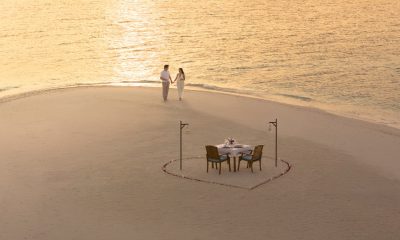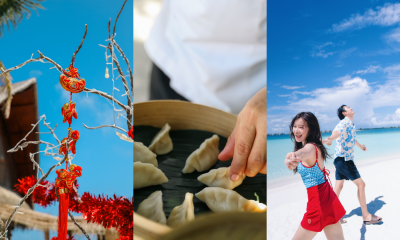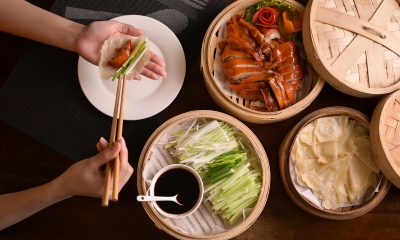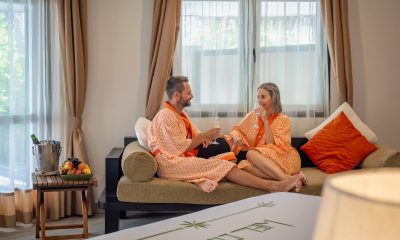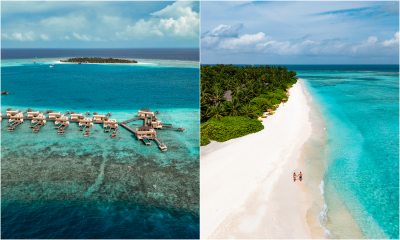Featured
Axel Jarosch: maintaining Banyan Tree Vabbinfaru, Angsana Ihuru’s appeal amidst growing competition

Axel Jarosch is by all means a hospitality veteran. Turning a childhood dream into a successful career that is marked by high-level postings all over the world with some of the most reputed hotel chains in the world, he still sees hospitality as one of the most gratifying fields.
It is this enthusiasm, coupled with years of experience, that he brings to his current role as General Manager for North Male, responsible for overall operations for Banyan Tree Vabbinfaru and Angsana Ihuru.
Before taking up his current posting in the Maldives in January, the German-born hospitality executive, who holds a Bachelors degree in International Hotel Economics and Hospitality from Fritz Gabler Hotelfachschule Heidelberg in Germany, served as the General Manager of Banyan Tree Al Wadi and Banyan Tree Ras Al Kaimah in the United Arab Emirates for almost two and a half year.
Prior to joining Banyan Tree Hotels and Resorts in 2014, Axel was the General Manager at Six Senses Zighy Bay. He has previously served as the Operations Director responsible for the hotel openings of Anantara Hotels, Resorts and Spas in Abu Dhabi, and has also held the position of General Manager with Anantara in Oman, Bali and Indonesia during pre-opening stages. He has also held managerial roles at Per AQUUM, Constance Hotels, InterContinental Hotel Group, and Starwood Hotels and Resorts Group. In addition to his time in the Gulf, he has worked in Sri Lanka, the Seychelles, Namibia and Mauritius.
In an interview with Maldives Insider, Axel looks onto the challenges as well as the opportunities of running Banyan Tree Vabbinfaru, one of the oldest resorts in the Maldives, and its sister property Angsana Ihuru in North Male Atoll, in the face of ever-increasing competition and changing travel trends.
Maldives Insider: How did you develop an interest in tourism and hospitality?
Axel Jarosch: I started my career at the age of 22. I studied economics, and while going to university in Germany I worked part-time in a number of hotels and restaurants. I started at the very bottom, doing an internship at a business hotel in Germany. I progressed in my career, going into food and beverage. I developed myself from a waiter to a restaurant captain to a supervisor to a manager to Assistant Food and Beverage Manager to Executive Assistant Food and Beverage Manager to Resident Manager and finally becoming a General Manager. My first General Manager posting was with Per AQUUM, opening The Fortress hotel in the Sri Lankan town of Galle.
On my first day itself, I fell in love with the industry. Working in this industry is very gratifying because you make it your day’s work to make other people happy. That for me is very unique.
I have always wanted to work internationally, moving and seeing other countries and cultures. This was a profession that gave me that opportunity. I have been blessed to have been able to work in South East Asia, Middle East, Africa and in the Indian Ocean. I cannot imagine doing any other job!
MI: When was your first visit to the Maldives?
AJ: I visited the Maldives for holiday about 10 years ago, and immediately fell in love with the country. What is there not to like? It really is a paradise.
What I find extremely unique about the Maldives is to have a team of predominantly local associates; in the case of Banyan Tree Vabbinfaru and Angsana Ihuru, people who have been working in this island for 15-30 years! To keep doing what they do with so much passion after so long is amazing. I am used to working in very remote locations, and I love working on these islands. In our profession, we do not have the same day twice. We are always welcoming different guests and dealing with new challenges. So, it is never boring.

Aerial view of Banyan Tree Vabbinfaru. PHOTO/ BANYAN TREE
MI: What do you focus mostly on in overseeing the operations of Banyan Tree Vabbinfaru and Angsana Ihuru?
AJ: My main focus is to continue the successful operation of Banyan Tree Vabbinfaru and Angsana Ihuru in the North Male Atoll, while maintaining the high standards that Banyan Tree is known for. I am also focused on continuously improving the services that we give to our guests. It can only be achieved by overseeing the training programmes and career development opportunities available to the associates, and by succession planning.
It is also my responsibility to increase awareness in the international arena about these two resorts. Banyan Tree was one of the first international brands that came to the Maldives. We were the first to introduce the spa concept to the Maldives. But we cannot live in the past. We can only move forward, evolve and grow the brand as well. We have got three beautiful resorts in the Maldives, but it does not mean that everybody knows about us.
MI: What are the efforts being made to achieve those goals?
AJ: One of my favourite words is consistency; being consistent in providing our guests with brand standards of personalised service. I think this is where we stand out, and Banyan Tree as a hotel group is unique. It is not so much about a guest staying in a villa, but more so about knowing the preferences of the guests and making sure that we personalise everything we do. For example, if you come in the morning for breakfast on your first day here and order a cappuccino, the team takes note of that and offers you a cappuccino the next day at breakfast rather than offering you the full expanse of our coffee menu. Another thing we do is to have the same associate look after you on your every visit and create a bond between the guest and the team here. This is something we are good at, and we see that pay off by the high percentage of repeat guests we have. That is because the guest feels at home here rather than being in a hotel.

A beach front pool villa at Banyan Tree Vabbinfaru. PHOTO/ BANYAN TREE
MI: What are the programmes conducted to maintain the service standard?
AJ: We look after our team well. As an employer, Banyan Tree is well-known for fair employment; of looking after the interests of the associates and recognising the good work they do. That is reflected in the very low staff turnover that we have. Having that high number of team members that have been loyal to the company speaks for the brand itself.
We make sure that each and everyone of our team is treated fairly and that they can continuously develop themselves. For example, under our cross exposure programme, we send a member of the team to one of our other resorts either in Thailand, Seychelles or elsewhere. We have jop swap; for example, I have right now team members from one of our Thailand properties looking after the main restaurant here. Their counterparts here have gone to Thailand to look after the main dining restaurant in Banyan Tree Phuket.
MI: What are the challenges in running an established property like Banyan Tree Vabbinfaru?
AJ: Logistics is always a challenge when it comes to working in the Maldives, where tourism resolves around the ‘one island, one resort’ concept. You have to know what to buy, when to buy and how much to buy. Everything else is easy because our resorts and our teams are very well-established.
But knowing that you have a 20-year-old product and still maintaining a certain standard that makes guests pay a certain amount of money to stay in is a challenge. In the recent past, we have made minor renovations such as changing the concept of our main restaurant to show some innovation. We have also added pools to the villas.
Since then, it has been about maintaining those standards through what we call a villa maintenance programme. Under this programme, every guest villa is completely redone every single year.

A deluxe beach front villa at Banyan Tree Vabbinfaru. PHOTO/ BANYAN TREE
MI: A number of new resorts are opening up across the Maldives, and especially in the Male region. Would this affect the performance of established properties like Banyan Tree Vabbinfaru?
AJ: I welcome competition. I think it is important, especially in hospitality. The moment you have competition, you start to develop your own property because you obviously do not want guests to go to another property.
Our resorts in North Male Atoll are very small; Banyan Tree Vabbinfaru has 48 villas and Angsana Ihuru has 45 villas. We have not seen a downturn in occupancy. We have been very lucky, especially in the first half of this year, as we were able to reach our forecast in terms of occupancy. I do not think a lot of our guests will go to other resorts because guests that come to a Banyan Tree have certain expectations. For example, we do not have any water villas here in the north. We are one of the few resorts still maintaining that original concept. Guests that come here want direct access to the beach and we have kept it that way. There are resorts opening up with over 100 water villas here in this atoll as well, but those are for a different clientele.
We are very lucky, as we have been very successful over the last 20 years. The awareness about Banyan Tree Vabbinfaru amongst our base clients, which is still predominantly Europeans, will continue to give us the exposure. But we need to concentrate on emerging markets that are now discovering the Maldives. Countries with three to four-hour flight distance like India, whose people have more disposable income than before, are now coming to the Maldives as well. So, we need to tap into those markets, and make sure that we are not relying on just one market.

Destination dining at Banyan Tree Vabbinfaru. PHOTO/ BANYAN TREE
MI: What should be done to tap into those markets?
AJ: We need to find the demands and expectations of guests coming from those markets. For example, Indian guests will have different expectations from Brits. We need to find ways to cater to those demands on a personalised level, be it adapting the restaurant menu, an entertainment concept or different recreational activities.
MI: How would you describe your experience in the Maldives?
AJ: It has been extremely satisfying. I consider myself very fortunate and lucky to be here. I love the brand. I started working for Banyan Tree because of the core values of sustainability that the brand has. We have been adopting several sustainable practices, be it coral planting, turtle programmes and preserving the underwater beauty of the Maldives, which is two thirds of the overall beauty of the country. The fact that Banyan Tree as a group puts such an emphasis on this makes me so proud to be part of this team.
We have guiding values of sustainability, including building green communities. All these values are followed by every Banyan Tree property in the world. We do some things a little bit differently here in the Maldives. For example, every Banyan Tree resort is tasked to plan 2,000 trees per year. Obviously being in the Maldives, there is so much that you can plant. So, instead of trees, we plant corals. Our marine lab, which is one of the first marine labs in the Maldives and has been operating for the past 15 years, puts a lot of emphasis on creating coral gardens, especially following the recent El Nino effect.
We also work together with local ministries and organisations to do studies on fish populations. Our work also extends to educational programmes with local schools.
Awards
Atmosphere Core earns triple honours at Layalina Editor’s Choice Awards
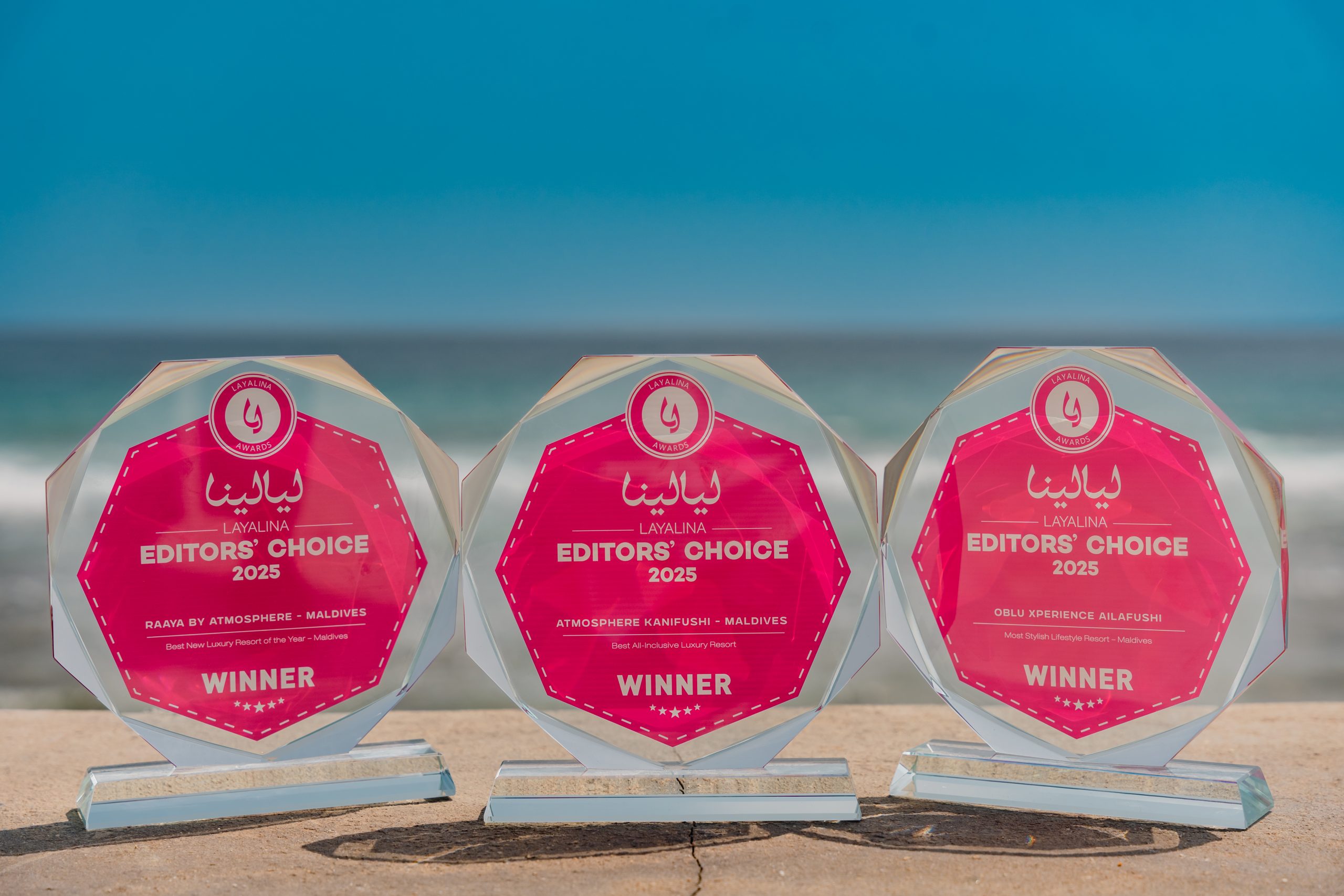
Atmosphere Core concluded 2025 with a strong industry showing, securing three major honours at the Layalina Editor’s Choice Awards 2025 for RAAYA by Atmosphere, Atmosphere Kanifushi Maldives and OBLU XPERIENCE Ailafushi. The accolades underscore the group’s ability to deliver clearly differentiated resort concepts for diverse traveller profiles, while maintaining a consistent emphasis on quality, comfort and guest satisfaction across its portfolio.
At the awards, RAAYA by Atmosphere was named Best New Luxury Resort of the Year – Maldives. Atmosphere Kanifushi Maldives received the title of Best All-Inclusive Luxury Resort, while OBLU XPERIENCE Ailafushi was recognised as Most Stylish Resort – Maldives. The honours are based on Layalina’s independent editorial assessment and established quality benchmarks, celebrating excellence across luxury hospitality, all-inclusive offerings and lifestyle-led design. Layalina is a leading Arab lifestyle publication under 7awi Media Group, with a strong readership and influence across the GCC and wider region.
Collectively, the awards highlight Atmosphere Core’s understanding of evolving travel expectations, delivering experiences that are thoughtful, well-crafted and easy to enjoy, whether guests are seeking tranquillity, variety or social energy.
Each of the recognised resorts brings a distinct identity to the group’s Maldivian portfolio. RAAYA by Atmosphere, located in the Raa Atoll, is defined by its serene environment and castaway-artist concept, encouraging guests to slow down and reconnect through nature, creativity and adventure. Atmosphere Kanifushi continues to stand out for its scale and consistency, offering a generous all-inclusive experience through the Kanifushi Plan™, expansive villas and a long, natural island setting that appeals to both families and couples. In contrast, OBLU XPERIENCE Ailafushi delivers a more dynamic island escape, characterised by contemporary design and a lively social atmosphere that resonates with travellers drawn to shared spaces, movement and modern aesthetics. Together, the accolades reflect a carefully curated portfolio designed to cater to a wide spectrum of travel moods and preferences.
Commenting on the achievement, Ashwin Handa, Chief Operating Officer of Atmosphere Core, said the group was honoured to receive the Layalina Editor’s Choice Awards 2025, recognising the three resorts across distinct categories. He noted that the recognition reflects the company’s carefully curated experiences, shaped by a strong sense of product, space and genuine care, and credited the passion and commitment of the teams, as well as the continued trust of guests, for the achievement.
Central to these successes is Atmosphere Core’s philosophy of the Joy of Giving, which positions hospitality around care, generosity and attention to detail. This approach informs destinations that feel closely connected to their natural surroundings and supports bespoke experiences that anticipate guest needs. The result, the group says, is a style of hospitality that is welcoming, effortless and personal, creating meaningful moments that endure beyond the stay itself.
Featured
The Standard, Maldives brings Lunar New Year energy to Raa Atoll
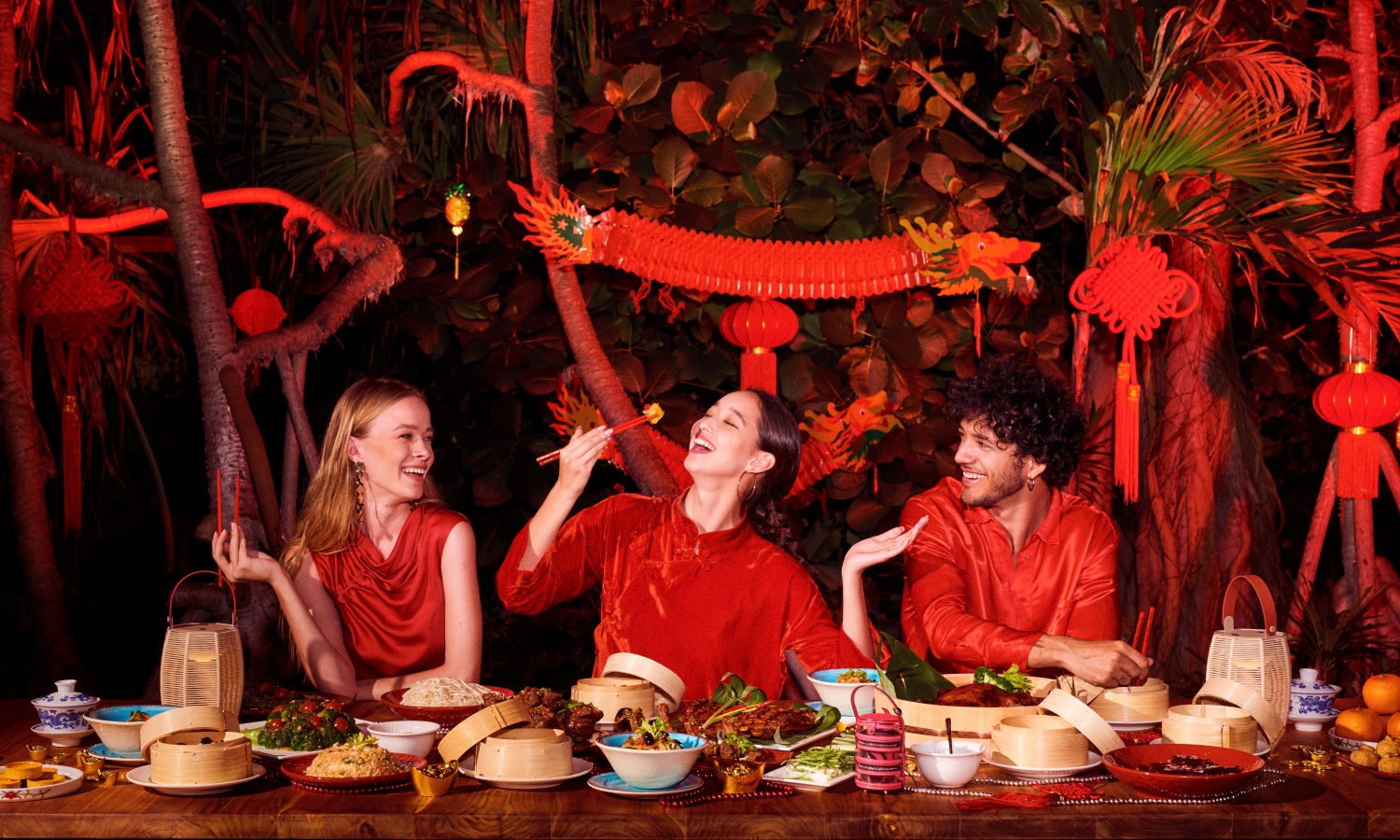
The Standard, Maldives will mark the Lunar New Year this February with a week-long celebration that invites guests to swap urban festivities for the turquoise waters of the Raa Atoll. Taking place from 17 to 22 February, the programme will transform the island resort into a festive setting that blends time-honoured traditions with the brand’s playful and contemporary character.
Designed to move beyond a conventional island escape, the celebrations will open with lively visual touches, including jumping stilts and fortune cookies, setting the tone for a week where Maldivian tranquillity meets the spirit of East Asian culture. Throughout the programme, guests will be immersed in a series of experiences that combine culinary creativity, entertainment and cultural expression.
Food takes centre stage in the Lunar New Year offering, with a diverse line-up of dining events curated to engage all the senses. Highlights include an Asian Street Food buffet inspired by classic Chinese motifs, alongside more refined beachfront experiences such as five-course Crab Night and Lobster Night dinners at Kula Beach. Interactive elements are also woven into the programme, with Tangyuan Time at Joos Café inviting families to prepare traditional sweet glutinous rice balls together, while younger guests can participate in a dedicated mocktail-making masterclass.
Evenings at the resort will be defined by high-energy entertainment and cultural performances. Todis Beach will host LED and fire shows, complemented by special Chinese dance performances that illuminate the shoreline after dark. Adding a local dimension to the celebrations, Maldivian Boduberu drumming will feature prominently, creating a rhythmic fusion of regional and international traditions. For guests seeking a more relaxed pace, the programme also includes a Lunar New Year Movie Night at the main pool and a Bingo Night at Todis Bar.
Commenting on the celebrations, Sonika Adlakha, Commercial Director of The Standard, Maldives, said the aim was to create a Lunar New Year experience that feels both authentic and adventurous. She noted that by combining the dynamic energy of street food markets and fire shows with the calm luxury of a Maldivian retreat, the resort is offering guests a distinctive way to welcome the Year of the Horse.
To complement the festivities, the resort is offering a Premium All-Inclusive Package, designed to provide seamless access to the week’s dining and entertainment programme. The package includes the full range of culinary experiences, from Asian Street Food stalls to themed buffets at Kula, as well as a selection of premium spirits, cocktails and refreshments. This offering allows guests to fully immerse themselves in the celebrations while enjoying the freedom to experience the Lunar New Year at The Standard, Maldives without limits.
Featured
Four Seasons Maldives brings Fire Horse energy to Lunar New Year celebrations
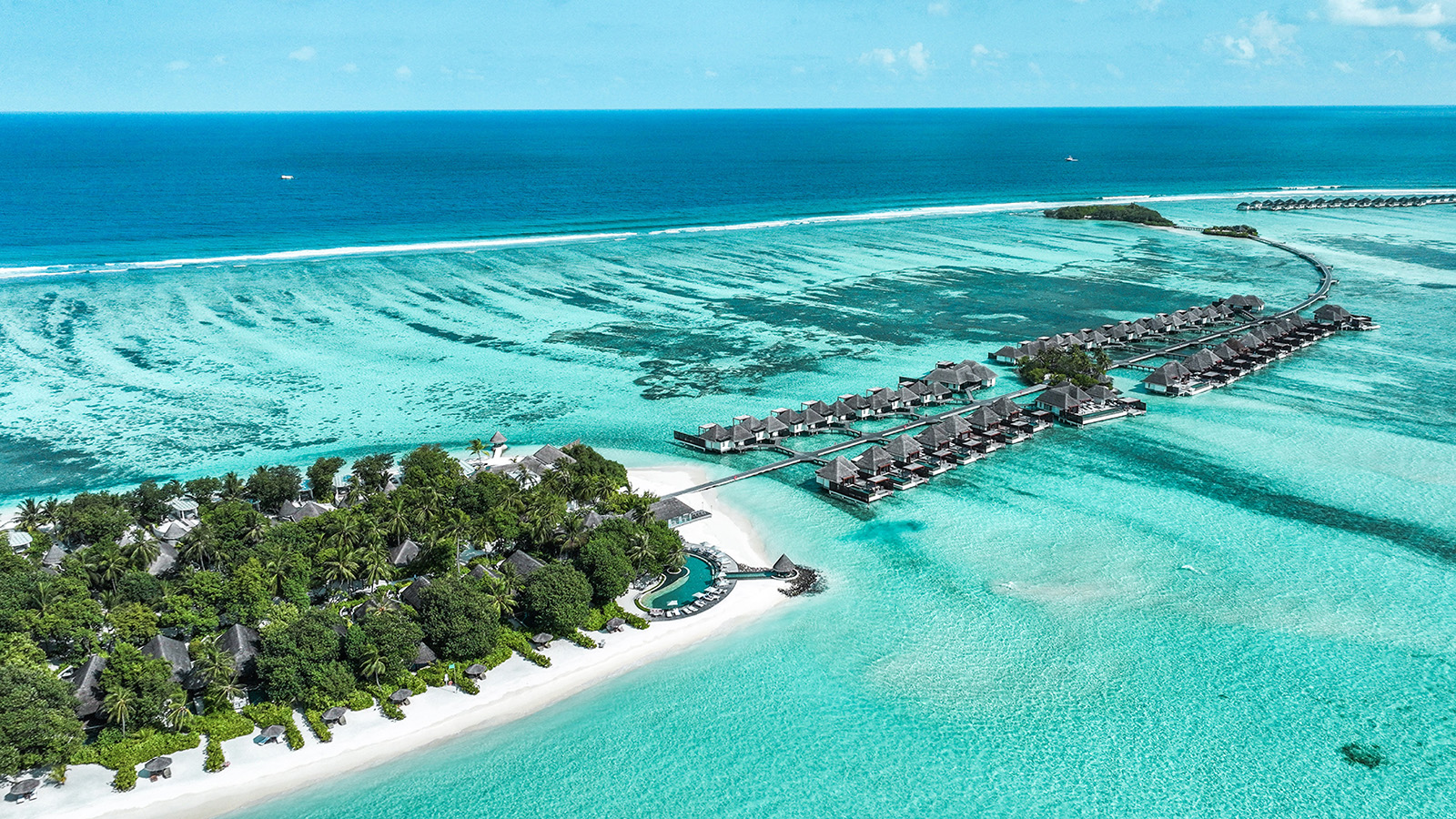
Four Seasons Resorts Maldives will welcome the Year of the Fire Horse with a week of Lunar New Year celebrations across Landaa Giraavaru and Kuda Huraa. Taking place from 16 to 24 February 2026, the programme will see both islands animated by the vibrant energy associated with this rare zodiac year.
Bold and spirited, the Fire Horse symbolises momentum, confidence and fresh beginnings. The celebrations are designed to reflect these qualities through a blend of cultural tradition, island elegance and family-focused experiences, positioning the Maldives as a fitting setting for the festive season.
Marking a first for the Maldives, the resorts will host an exclusive pop-up by Beijing’s Michelin-recognised Baiweiyuan Dumpling Restaurant, operating concurrently at both islands. Long celebrated in Beijing for its handmade dumplings and comforting soups, Baiweiyuan will present a menu featuring signature pork and chive dumplings, beef and onion fillings, and vegetarian options such as egg and tomato. Cold starters, including soy-braised pork trotter, will complement the experience.
Prepared fresh to order, the dumplings introduce an authentic taste of Beijing to the Indian Ocean, offering a culinary highlight that reflects the warmth and generosity associated with the Fire Horse.
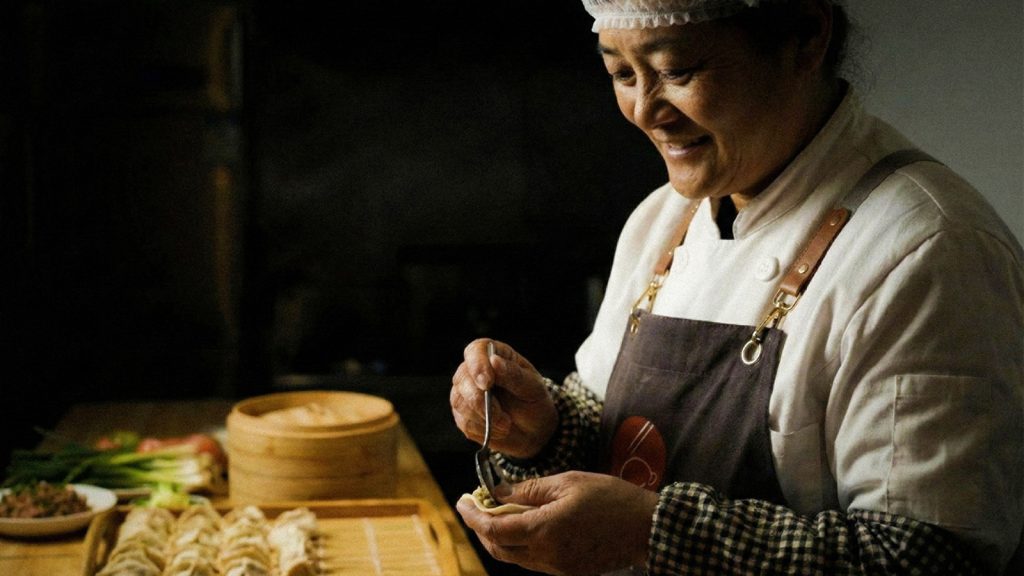
Lunar New Year at Kuda Huraa
16–24 February 2026
At Kuda Huraa, Lunar New Year celebrations will unfold throughout the week in a lively, festival-style programme. Events begin with a Reunion Dinner at Café Huraa, followed by themed dining evenings, outdoor cinema screenings, a Pool Party and a Pop-Up Asian Market.
Evenings will include experiences such as a Secret Beach BBQ under the stars, a Mediterranean Market at Reef Club and an Asian Buffet at Café Huraa. Baiweiyuan’s dumpling pop-up will be available daily, allowing guests to enjoy the flavours of Beijing throughout the celebrations.
Kuda Huraa highlights include:
- Reunion Dinner on 16 February
- Family Feast Lunch, Seafood Night and Asian Buffet
- Secret Beach BBQ and Mediterranean Market
- Pool Party with DJ on 18 February
- Pop-Up Asian Market and outdoor movie nights
- Daily Baiweiyuan Dumpling pop-up
The Kuda Mas Kids Club will also host a two-week Fire Horse–inspired festival for younger guests, featuring activities such as lantern painting, snorkelling adventures, arts and crafts, dumpling making, tie-dye workshops, karaoke evenings and beach games. The programme is designed to encourage creativity, confidence and fun.
Lunar New Year at Landaa Giraavaru
16 February 2026
Landaa Giraavaru will welcome the New Year with a poolside celebration from 7.00pm to 10.30pm, featuring a Dragon Dance, live DJ and lantern-lit setting around the main pool. A Yu Sheng prosperity toss will symbolise abundance and good fortune, while live cooking stations will showcase celebratory flavours prepared by the resort’s culinary team.
Landaa Giraavaru highlights include:
- Poolside Lunar New Year celebration
- Dragon Dance performance
- Live DJ and festive ambience
- Yu Sheng prosperity toss
- Culture-inspired welcome drinks
- Baiweiyuan Dumpling pop-up available throughout the week
Across both islands, Lunar New Year at Four Seasons Resorts Maldives is designed to bring families and friends together in the spirit of prosperity, connection and shared celebration. Guests are invited to welcome the Year of the Fire Horse through traditions that honour luck, abundance and meaningful togetherness.
-
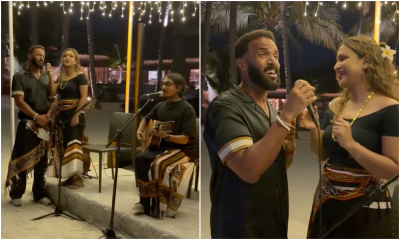
 Entertainment4 days ago
Entertainment4 days agoCraig David shares emotional Maldives moment after ‘Rise & Fall’ surprise at resort dinner
-
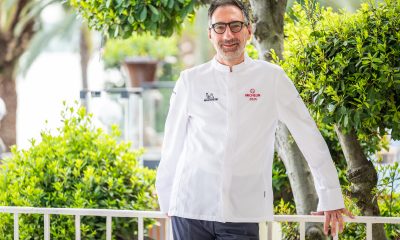
 Food7 days ago
Food7 days agoMichelin-starred Italian chef Maurizio Bufi brings Lake Garda flavours to The Ritz-Carlton Maldives, Fari Islands
-
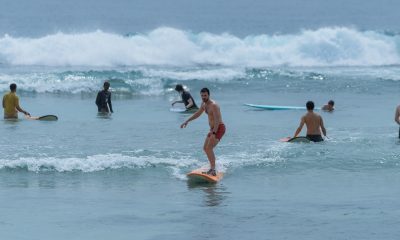
 Action1 week ago
Action1 week agoAtaraxis Grand & Spa hosts integrated work-and-dive corporate retreat in Fuvahmulah
-
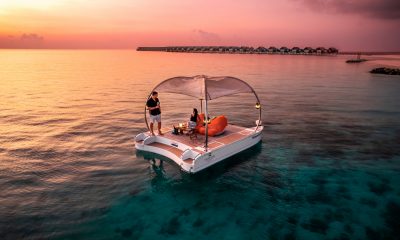
 Love1 week ago
Love1 week agoGrand Park Kodhipparu curates new ‘Romance in Paradise’ experience for couples
-
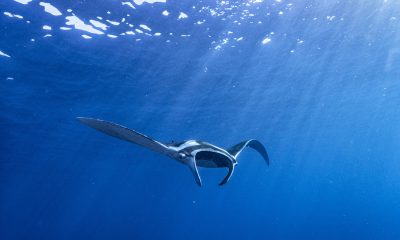
 Action1 week ago
Action1 week agoFour Seasons Landaa Giraavaru shares manta sightings forecast for 2026 and 2027
-
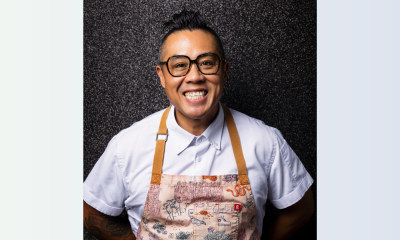
 Cooking1 week ago
Cooking1 week agoJOALI BEING partners with Chef Kelvin Cheung for Lunar New Year residency
-
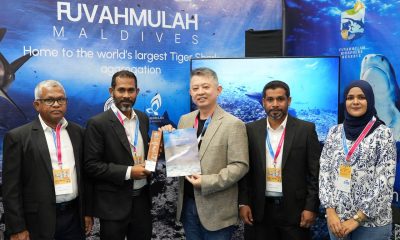
 Awards3 days ago
Awards3 days agoFuvahmulah receives Tiger Shark Dive Award at DRT Expo KL
-
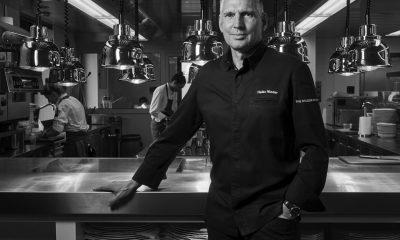
 Cooking1 week ago
Cooking1 week agoChef Heiko Nieder brings two-Michelin-starred culinary artistry to Sirru Fen Fushi



